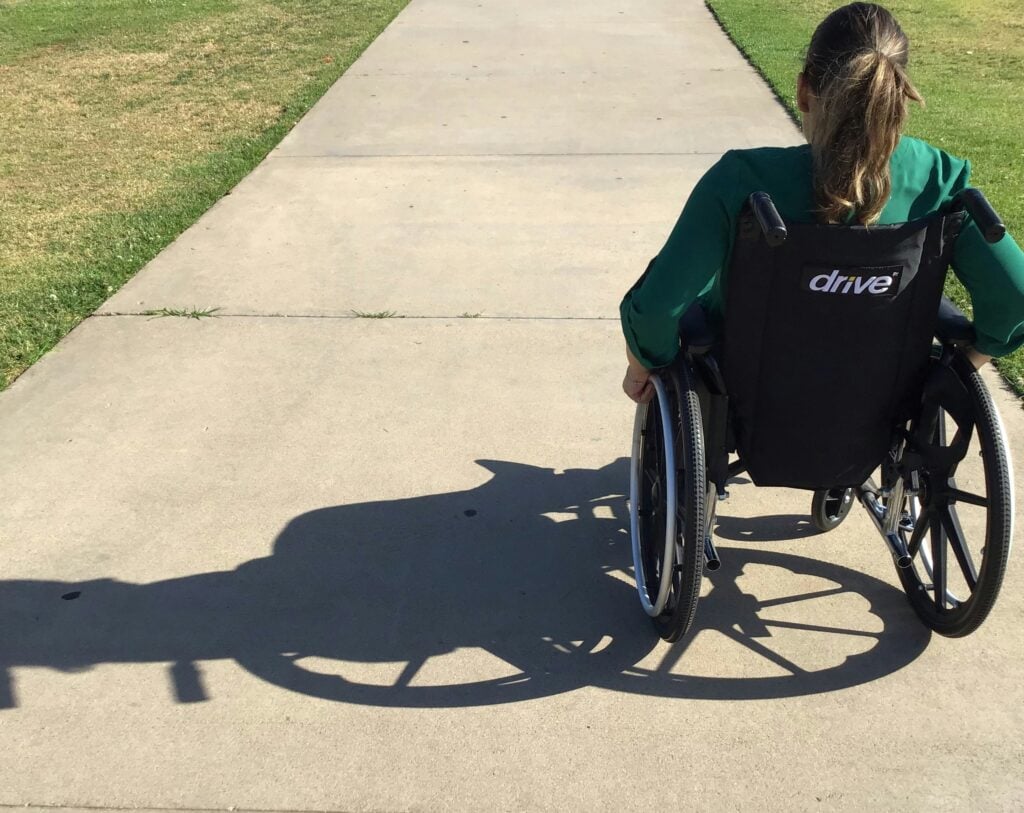Tips for Professionals Balancing Work and Caring for Family Members with Mobility Needs
The world of work demands a lot. You strive to excel in your career, meet deadlines, and contribute meaningfully to your field. But what happens when your personal life throws a curveball? For many professionals, that curveball comes in the form of caring for a family member with mobility needs. Whether it’s an aging parent, a child with a disability, or someone recovering from an illness, this added responsibility can feel overwhelming.
Balancing work and caregiving can cause stress, burnout, and feelings of inadequacy due to the need for constant presence. This article is here to help. Here, we will understand your unique challenges and aim to equip you with practical tips and strategies.

Time Management Techniques
For caregivers, feeling stretched thin between work and family is a common challenge. However, implementing effective time management techniques enables regaining control of your schedule, ensuring quality time for professional and personal commitments. Prioritizing tasks and setting boundaries can help alleviate the pressure and create a more balanced lifestyle.
As per the MSD Manual, about one in six Americans provides care for a family member aged 50 or older. These caregivers typically dedicate around 22 hours per week to providing care. Family caregivers demonstrate significant and enduring commitment, whether providing short-term post-surgery assistance or long-term care over months or years.
The significant time demands of caregiving emphasize the need for effective time management techniques to balance caregiving with professional duties.
To optimize your time management:
- Start by prioritizing tasks based on importance and urgency, utilizing techniques like the Eisenhower Matrix.
- Implement time blocking to allocate dedicated slots in your schedule for work, family care, and self-care, fostering structure and preventing overwhelm.
- Don’t hesitate to delegate tasks at work and seek assistance from family, friends, or community services to lighten your load.
Flexible Work Arrangements
Flexibility is increasingly important in today’s workplace, particularly for working caregivers. Fortunately, many companies recognize this need and provide flexible work arrangements, which can greatly alleviate the challenges of balancing work and family responsibilities. Such accommodations empower caregivers to navigate their dual roles more effectively while maintaining productivity and well-being.
In 2023, AARP reported that caregiving significantly impacts caregivers’ work lives, with 61% of employed caregivers experiencing changes in their employment situation. Over half of caregivers noted being late, leaving early, or taking time off for caregiving duties.
These findings underscore the substantial influence of caregiving on professionals’ ability to maintain consistent work schedules.
Discuss remote work, flexible hours, and compressed workweeks with your employer. Remote work offers the flexibility to manage caregiving tasks at home, while flexible hours can accommodate medical appointments and therapy sessions.
Seek Support Networks
Navigating the intricate demands of both a professional career and caregiving for family members with mobility needs can be overwhelming. Seeking support networks can provide invaluable assistance and encouragement along the journey. Online communities and social media groups offer a platform for caregivers to connect, share experiences, and access valuable resources and advice.
Also, local support groups and caregiver organizations provide opportunities for in-person interaction, emotional support, and practical assistance. Professional caregiver services and community resources can also offer respite care and additional support, alleviating some of the burden on caregivers. Engaging with support networks fosters resilience and well-being by sharing experiences and finding solidarity amidst the challenges of caregiving.
Professional Home Care Assistance
For some families, the demands of caregiving may necessitate additional support. Here’s where professional home care services can be a lifesaver. These services offer a range of personalized care options, from companionship and meal preparation to assistance with medication management and daily living activities.
The specific services you require will depend on your loved one’s needs. RNs, LNAs, and home health aides can provide various essential care services. You may consider consulting with a Nurse Practitioner (NP) for more complex medical needs. NPs are advanced practice nurses with specialized training in managing chronic conditions, ordering and interpreting diagnostic tests, and prescribing medications.
Moreover, with the advancement of technology, online MSN nurse practitioner programs have made it more accessible for nurses to advance their careers and become NPs. NPs are crucial in providing comprehensive medical care, particularly for individuals with complex medical needs. They possess specialized training in managing chronic conditions, interpreting diagnostic tests, and prescribing medications, making them valuable healthcare team members.
Spring Arbor University Online emphasizes that finishing your online MSN-NP degree program lays the foundation for a fulfilling career. NPs possess the authority to prescribe medication, conduct patient examinations, diagnose illnesses, and administer treatments, mirroring the responsibilities of physicians.
Self-Care Practices
Amidst the demands of balancing work and caregiving, professionals must prioritize self-care. Integrating self-care practices into daily routines is vital for maintaining physical and mental well-being. By prioritizing self-care, professionals can better cope with the challenges of their dual responsibilities and sustain their overall health and productivity.
According to MedCityNews, caregivers are making sacrifices in their personal lives. Less time is spent on hobbies by 45% of the participants. Also, 39% see their friends less often, while 34% fall behind in managing their health. These statistics underscore the significant personal toll caregiving responsibilities can impose on individuals.
Explore integrating the subsequent self-care practices into your daily regimen. Engage in regular physical activity to reduce stress and enhance mood. Prioritize nutritious meals and snacks to sustain energy levels and promote wellness. Practice mindfulness techniques such as meditation or deep breathing exercises to alleviate stress and enhance mental clarity.
Financial Planning and Resources
Navigating the financial aspects of caregiving for family members with mobility needs requires careful planning and access to resources. It’s essential for professionals to proactively engage in financial planning to mitigate the potential strain on their finances. Creating a comprehensive budget that accounts for medical expenses, assistive devices, and potential home modifications can provide clarity and help manage costs effectively.
Also, reviewing insurance policies and exploring supplemental insurance or government assistance programs can provide additional financial support for caregiving expenses. Consulting financial advisors or estate planners to secure the financial future of both the caregiver and care recipient is advisable.
Communication and Advocacy
Effective communication and advocacy play crucial roles in the lives of professionals, balancing work and caregiving for family members with mobility needs. Open dialogue with employers, colleagues, and family members about caregiving responsibilities and necessary accommodations is essential for navigating this dual role successfully. Setting clear boundaries and communicating needs openly can help professionals manage their time and energy effectively.
Also, advocating for supportive workplace policies such as flexible work arrangements and access to caregiver support resources is vital.
FAQs
What are some practical strategies for managing time effectively when juggling work and caregiving duties?
Prioritize tasks, scheduling dedicated blocks for work, family needs, and self-care. Delegate tasks at work and seek help from loved ones or community services. Utilize time-saving technologies, and don’t be afraid to leverage flexible work arrangements.
Are there resources available to help professionals navigate the financial aspects of caregiving?
Government programs, employer benefits, and financial planning tools can ease the burden. Explore options like Medicaid, dependent care FSAs, and cost-estimation resources to find the support you need.
How can professionals effectively communicate their caregiving responsibilities to their employers?
Be clear, concise, and specific about your situation and preferred flexible work arrangements. Highlight how these arrangements can benefit your productivity and overall commitment to the company.
Achieving Harmony in Work and Caregiving
Balancing the demands of a professional career with the responsibilities of caring for family members with mobility needs is undoubtedly challenging. However, professionals can successfully navigate this delicate balance by implementing practical strategies and seeking out valuable resources.
While caregiving presents challenges, it is also deeply rewarding, fostering love, compassion, and meaningful connections. With determination and effective strategies, professionals can navigate the complexities of balancing work and caregiving, ultimately thriving in both roles. By embracing the inherent rewards of caregiving and implementing strategies for success, professionals can find fulfillment in their professional and caregiving endeavors alike.






